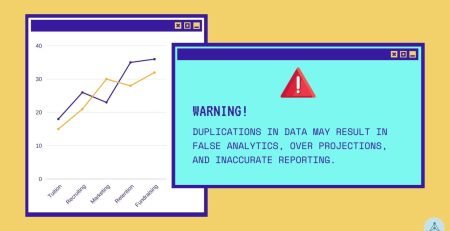How Higher Ed Institutions Can Improve Campus Data Management Using an Integration Management Platform
If higher ed institutions aren’t managing data processes online in 2021, it’s time for a massive change. Most organizations have transitioned their businesses online, following the steps of their audiences. It’s time for colleges to fully join the bandwagon and boost campus data management.
Most colleges use iPaaS platforms like Integrately, Zapier, and Jitterbit, etc. However, these systems are slowly becoming obsolete due to inefficiencies in the data flow, messy APIs, and manual data entries. Instead, many colleges are opting for an integration management platform like AMSA Connect to improve operational efficiency, manage several integrations, and streamline data flow.
Read on to learn how higher ed institutions can improve campus data management using an integrations management platform.
The Importance of Effective Campus Data Management
Colleges have several responsibilities and priorities to consider when it comes to campus data management. Your data governance process can make or break your reputation, especially when dealing with things online during the COVID-19 pandemic. By sticking with old or dying technologies, you may face:
- Data loss
- Duplicate data
- Data corruption
- Data Leaks, breaches, hacks, and theft
As a consequence, you can trigger a ripple effect that disrupts your entire student lifecycle from marketing to enrollment, admissions, student success, retention, and advancement. Thus, you need an advanced integration management platform that can restructure your information pipeline, synchronize processes, and authenticate data.
Benefits of an Integration Management Platform for Higher Ed Institutions
Below are the major benefits of an integration management platform that will make iPaaS platforms obsolete and optimize campus data management:
1. Real-Time Data Deduplication and Error Reporting
An integration management platform emphasizes data integrity by flagging and quarantining duplicate data during processing. It automatically eliminates redundant student data from the equation and minimizes downtime to help departments stay on track. With real-time error reports, you can identify and evaluate the root causes of the errors.
2. Data Enhancement and Synchronization
With an integration management platform, you can enhance the data flowing in. This includes addresses, phone numbers, email verification, and alumni data. Another important feature it offers is data synchronizations, ensuring every department has access to the same data following any changes.
3. Customizable Analytics
Standard reporting and integrations can be frustrating for higher ed IT departments, especially when manually updating reports or managing integrations. By customizing analytics for integration, you can build your dashboard with the data that matters and easily interpret it to make informed decisions. You can choose to present specific student information or apply heat mapping for the whole integration process.
4. Connected Communications Feed
Unlike most iPaaS Platforms, an integrated management platform centralizes communication just like a social media platform. Departments get instant access to any operational updates of changes in data.
Bottom Line
An integration management platform is an innovative solution to ineffective campus data management. We’ve seen the weaknesses of conventional platforms during the pandemic and colleges cannot afford more data inefficiencies in their student lifecycle. AMSA Connect’s revolutionary integration management platform is a game-changer that you can use to optimize every aspect of your data collection and manage several integrations without breaking a sweat.












Leave a Reply